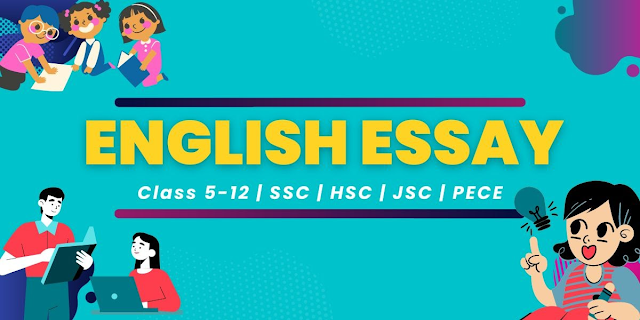Liberation War of Bangladesh Composition / Essay for SSC & HSC
Liberation War of Bangladesh for SSC Students
Introduction:
The Liberation War of Bangladesh, also known as the Bangladesh War of Independence, was a significant armed conflict that took place in 1971. It led to the emergence of Bangladesh as an independent and sovereign nation. The war was fought between East Pakistan (present-day Bangladesh) and West Pakistan (present-day Pakistan) and remains a defining moment in the history of Bangladesh. This composition aims to provide an overview of the Liberation War of Bangladesh for SSC students.
Background:
The root causes of the Liberation War can be traced back to the partition of India in 1947, which led to the creation of two separate nations: India and Pakistan. East Pakistan, despite being geographically distant from West Pakistan, was politically dominated by the West. This power disparity, along with economic and cultural differences, caused discontent among the people of East Pakistan. The struggle for autonomy and recognition of Bengali identity gained momentum over the years.
The Agitation and Repression:
The people of East Pakistan faced widespread discrimination and neglect from the West Pakistani government. The language movement of 1952, which demanded recognition of Bengali as a national language, became a turning point in the fight for autonomy. However, the ruling establishment responded with forceful repression, leading to numerous casualties.
Election of 1970 and the Liberation War:
In 1970, general elections were held in Pakistan, and the Awami League, led by Sheikh Mujibur Rahman, won a majority of seats in the National Assembly. However, the West Pakistani establishment refused to hand over power to the Awami League, leading to widespread protests and strikes in East Pakistan. On March 25, 1971, the Pakistani military launched Operation Searchlight, a brutal crackdown aimed at suppressing the movement for independence.
The Struggle and Resistance:
The people of East Pakistan, undeterred by the military's oppression, organized themselves into armed resistance groups. The Mukti Bahini, composed of freedom fighters from various backgrounds, played a crucial role in the liberation struggle. They engaged in guerrilla warfare, sabotage, and other acts of resistance against the Pakistani forces.
International Support and Humanitarian Crisis:
The Liberation War gained international attention, and countries like India, which shared a border with East Pakistan, provided support to the Bangladeshi freedom fighters. On December 16, 1971, the Pakistani forces surrendered to the joint forces of the Mukti Bahini and the Indian army, marking the end of the war. The conflict resulted in a massive humanitarian crisis, with millions of refugees fleeing to neighboring India to escape violence and persecution.
The Birth of Bangladesh:
The Liberation War of Bangladesh resulted in the emergence of an independent nation. On March 26, 1971, Sheikh Mujibur Rahman declared Bangladesh's independence, and the country began its journey as a sovereign state. The sacrifices made by the freedom fighters and the resilience of the Bangladeshi people in the face of adversity remain an integral part of the nation's history and identity.
Conclusion:
The Liberation War of Bangladesh was a pivotal event that shaped the destiny of the nation. It was a struggle for self-determination, justice, and recognition of the rights of the Bengali people. The war serves as a reminder of the indomitable spirit and sacrifices made by the freedom fighters who fought for the ideals of freedom, democracy, and equality. Understanding and appreciating this historic event is essential for SSC students to develop a deeper sense of national identity and pride.
Victory Day Composition for All Class Students, Click Here!
Liberation War of Bangladesh for HSC Students
_________________________________________________________________
Introduction:
The Liberation War of Bangladesh, also known as the Bangladesh War of Independence, was a monumental armed conflict that took place in 1971. It marked a significant chapter in the history of Bangladesh, leading to the emergence of the nation as an independent and sovereign entity. This composition aims to provide a comprehensive understanding of the Liberation War of Bangladesh for HSC students, exploring its background, key events, and the lasting impact it had on the nation.
Background:
The roots of the Liberation War can be traced back to the partition of India in 1947, which resulted in the creation of two separate nations: India and Pakistan. East Pakistan, located geographically distant from West Pakistan, faced political, economic, and cultural marginalization. The dominant West Pakistani establishment perpetuated discrimination and neglect towards the people of East Pakistan, which fueled a growing sense of discontent and demands for autonomy.
Agitation and Repression:
The quest for autonomy and recognition of Bengali identity gained momentum through various movements. The Language Movement of 1952, which demanded the recognition of Bengali as a national language, became a pivotal event in the struggle for autonomy. The ruling establishment responded with brutal repression, using force to suppress the demands of the people. The sacrifices made during this period laid the foundation for the subsequent liberation movement.
Election of 1970 and the Liberation War:
In 1970, general elections were held in Pakistan, and the Awami League, led by Sheikh Mujibur Rahman, secured an overwhelming majority of seats in the National Assembly. However, the West Pakistani establishment refused to hand over power to the Awami League, disregarding the democratic mandate of the people. This led to widespread protests and strikes in East Pakistan, further aggravating the already tense situation.
The Pakistani military, under the leadership of General Yahya Khan, launched Operation Searchlight on March 25, 1971. It was a brutal crackdown aimed at suppressing the movement for independence. The military's actions included mass killings, rape, arson, and widespread human rights abuses. This marked the beginning of the Liberation War, with the people of East Pakistan rising up against the oppressive regime.
Struggle and Resistance:
The people of East Pakistan, undeterred by the military's repression, organized themselves into various armed resistance groups. The Mukti Bahini, meaning "Freedom Fighters," played a crucial role in the liberation struggle. Composed of individuals from different backgrounds, including students, intellectuals, and ordinary citizens, they engaged in guerrilla warfare, sabotage, and other acts of resistance against the Pakistani forces.
Best 05 Folk Music Paragraph
International Support and Humanitarian Crisis:
The Liberation War gained international attention, with countries like India providing crucial support to the Bangladeshi freedom fighters. Indian intervention in the war turned the tide in favor of the liberation forces. On December 16, 1971, the Pakistani forces surrendered to the joint forces of the Mukti Bahini and the Indian army. The conflict resulted in a massive humanitarian crisis, with millions of refugees fleeing to neighboring India to escape violence and persecution.
The Birth of Bangladesh:
The culmination of the Liberation War led to the birth of the independent nation of Bangladesh. On March 26, 1971, Sheikh Mujibur Rahman declared Bangladesh's independence, marking the end of a long and arduous struggle. The sacrifices made by the freedom fighters and the resilience of the Bangladeshi people in the face of adversity remain etched in the nation's history and collective memory.
Legacy and Impact:
The Liberation War of Bangladesh had a profound and lasting impact on the nation. It not only secured Bangladesh's independence but also shaped its identity as a country founded on the principles of democracy, freedom, and social justice. The war serves as a reminder of the sacrifices made by the freedom fighters and the price paid for the nation's sovereignty. It is an integral part of the Bangladeshi national identity, inspiring generations to uphold the values of independence, unity, and progress.
Conclusion:
The Liberation War of Bangladesh stands as a testament to the indomitable spirit and sacrifices of the Bangladeshi people in their quest for freedom and self-determination. It was a struggle against oppression, discrimination, and the denial of basic rights. Understanding and appreciating the significance of this historic event is crucial for HSC students, as it provides a deeper understanding of their nation's history, instilling a sense of pride, and inspiring a commitment to upholding the ideals of freedom, democracy, and social justice.
For more Paragraphs, Click Here!
Best 05 Folk Music Paragraph
Please visit Our Website Regularly.
- 10 Minute Madrasah ফেসবুক গ্রুপে যোগ দিয়ে প্রযুক্তি বিষয়ক যেকোনো প্রশ্ন করুনঃ এখানে ক্লিক করুন।
- 10 Minute Madrasah ফেসবুক পেইজ লাইক করে সাথে থাকুনঃ এই পেজ ভিজিট করুন।
- 10 Minute Madrasah ইউটিউব চ্যানেল সাবস্ক্রাইব করতে এখানে ক্লিক করুন এবং দারুণ সব ভিডিও দেখুন।
- গুগল নিউজে 10 Minute Madrasah সাইট ফলো করতে এখানে ক্লিক করুন তারপর ফলো করুন।
- 10 Minute Madrasah সাইটে বিজ্ঞাপন দিতে চাইলে যোগাযোগ করুন এই লিংকে।
- প্রযুক্তির সব তথ্য জানতে ভিজিট করুন www.10minutesmadrasah.com সাইট।


